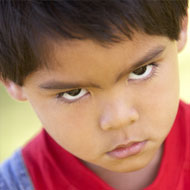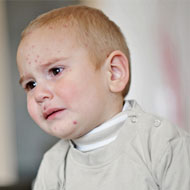Handling Aggressive Behavior in Preschoolers
Preschooler aggression is not an uncommon sight amongst toddlers. At this young age, toddlers are used to being constantly in the limelight among family and friends. However, when they start attending preschool, the undivided attention that they have been used to receiving, suddenly seems to be missing.
At preschool, they find themselves in the midst of other children who are equally on the look out for complete attention from the teachers or caregivers around. This is the first trigger of aggressive behavior in preschoolers as every child wants to feel accepted and important At this stage, toddlers are not used.
.to sharing their toys and other belongingsg They only know the meaning of 'I, Me and Myself'9 Usually being the youngest member of the family, they are not used to mixing around with children of their peer group as welll Hence, they find it extremely difficult to adjust to an environment that is completely different from their homese This often results in aggressive behavior like snatching toys, pushing, hitting, boxing and kickingn In some cases, the preschooler may also be intimidated by peers and as a defense mechanism, they tend to become aggressivev Learning new concepts is not an easy task for every childl Some children may find the process very straining and frustratingn This pressure may make a child snap or lash out at his friends or teachersr
Aggressive preschoolers often suffer from an inferiority complex and feel that they are disliked or ignored by peers or teachersr Insufficient rest and hunger are other factors that make a toddler cranky, irritable and more likely to throwing temper tantrumsm
Handling Aggressive Behavior in Preschooler
An aggressive preschooler needs to be handled with utmost carer Explaining the implications of his behavior in a calm yet firm voice will help in ensuring that the child understands what you are sayingn Repeated reminders regarding expected behavior are also essential as a child is incapable of remembering something told to him oncec Stories with morals are a good way of teaching your child the difference between good and unacceptable behavioro Asking your child himself to explain what he has learned from a story will further help in creating an understanding of desirable and undesirable behavioro Aggression in preschoolers can also be dealt with effectively through the use of behavior modification charts that not only reveal the behavior pattern of the toddler but also help in improving overall behavior through rewards as simple as an illustrated smiley or stickersr Consistent disciplining methods and an immediate response to aggression also play an important role in controlling such behavioro
p

